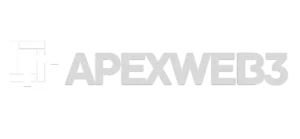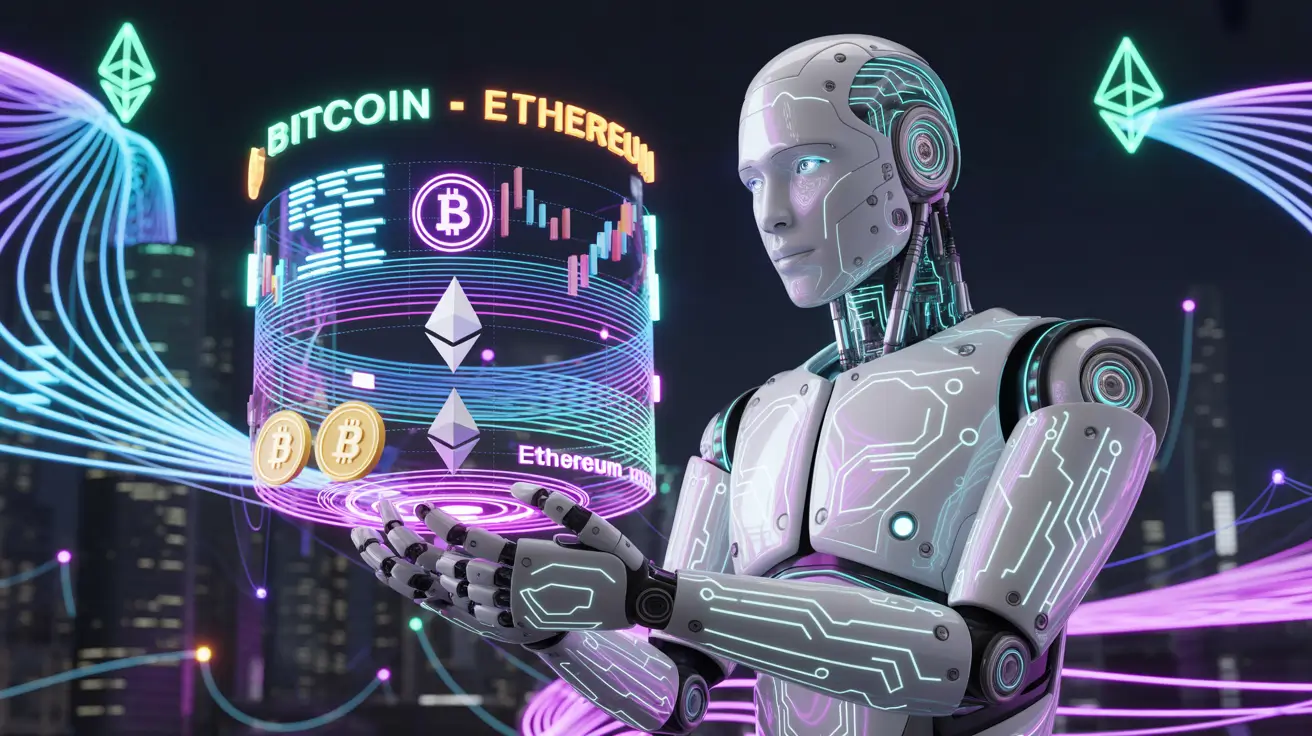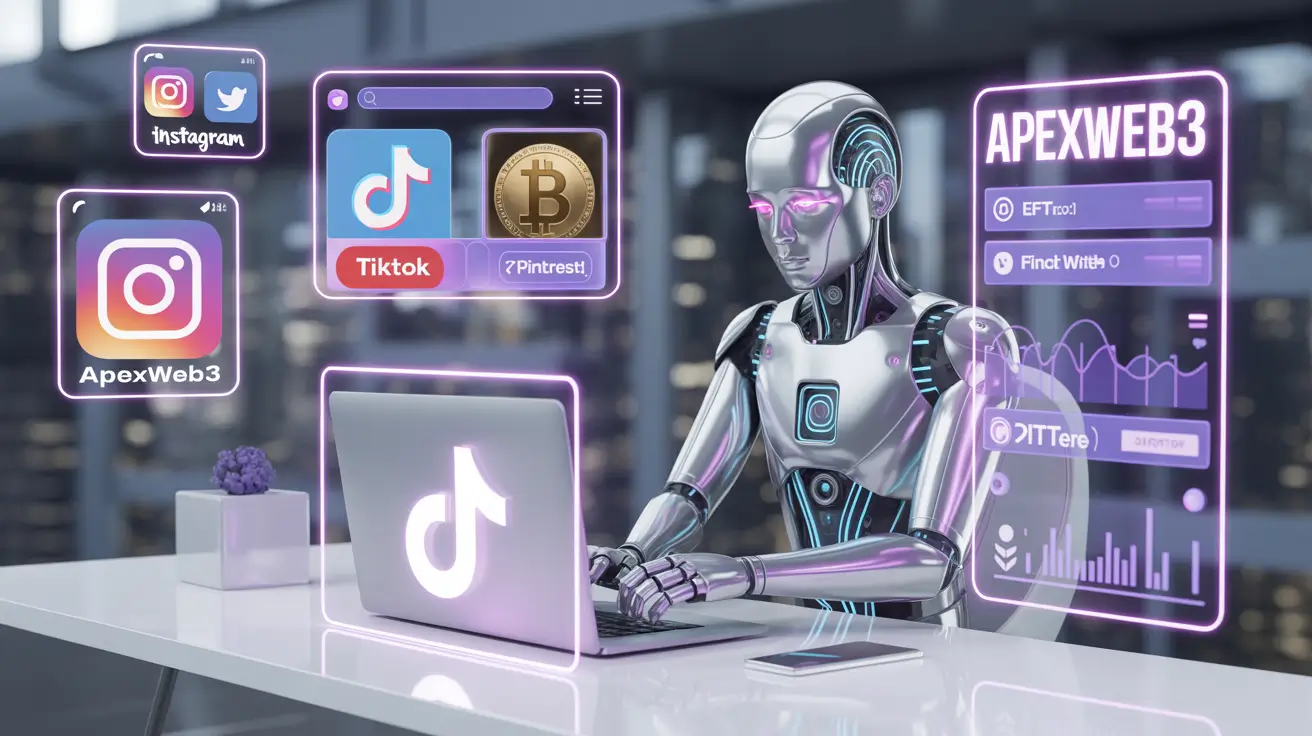Table of Contents
Imagine this: autonomous digital agents hustling 24/7 on decentralized networks — making moves, executing trades, and steering protocols without a single human pulling the strings. No centralized servers. No corporate overlords. Just raw, untamed algorithmic intelligence riding on blockchain rails. Welcome to the uncharted frontier of Web3 AI agents, where artificial intelligence collides with decentralization in ways that would leave even the most seasoned degens dizzy.
If you’ve been sleeping on this intersection, you’re about to get alpha-pilled hard. Web3 AI agents aren’t just the next shiny object in crypto, they’re fundamentally reshaping how we think about automation, trust, and digital sovereignty. From autonomous DeFi yield farmers to AI-powered DAO governors, these digital entities are already starting to flip the script on traditional centralized AI.
In this deep dive, we’ll break down everything you need to know about decentralized AI agents, explore the most promising use cases that are actually shipping (not just whitepaper vapor), and give you the roadmap to start building or investing in this space. No fluff, just pure alpha.
Key Takeaway: Web3 AI agents combine the autonomous decision-making of AI with the trustless, decentralized infrastructure of blockchain, creating a new paradigm where intelligent systems operate without centralized control or intermediaries.
Deconstructing the Core Concepts
What is Web3?
Web3 represents the decentralized internet built on blockchain technology, where users own their data, assets, and digital identity. Unlike Web2’s platform-dependent model, Web3 operates through peer-to-peer networks, smart contracts, and tokenized incentives. For AI agents, this means no single point of failure, censorship resistance, and programmable economic interactions.
The killer feature? Trustlessness. You don’t need to trust a corporation to run your AI agent properly, the blockchain enforces the rules automatically.
What are AI Agents?
AI agents are autonomous software programs that perceive their environment, make decisions, and take actions to achieve specific goals. Traditional AI agents operate in centralized systems, think ChatGPT, trading bots, or recommendation algorithms. They’re powerful but limited by their corporate masters and closed-loop environments.
The game changes when these agents can interact with money, governance tokens, and decentralized protocols directly.
The Convergence: Defining Web3 AI Agents
Web3 AI agents are autonomous programs that combine AI decision-making capabilities with blockchain-based execution and economic participation. They can hold crypto assets, interact with smart contracts, participate in governance, and operate across multiple protocols without human oversight.
Think of them as digital entities with their own crypto wallets, capable of earning, spending, and making decisions based on market data, social signals, and programmed objectives. They’re not just tools, they’re economic actors in the decentralized economy.
How Web3 AI Agents Work: The Underlying Architecture
Key Components
The real innovation sparks where multiple technologies converge.
Blockchain Infrastructure: Provides the trustless execution layer where agents operate. Ethereum, Polygon, and newer chains like Base offer the computational backbone.
Smart Contracts: Self-executing code that agents interact with to perform actions like trading, governance voting, or protocol interactions.
Oracles: Critical data bridges that feed real-world information to blockchain-based agents. Projects like Chainlink make this possible at scale.
AI Models/LLMs: The decision-making brain, often running on decentralized compute networks or hybrid centralized-decentralized architectures.
Decentralized Storage: IPFS and Arweave store agent memory, training data, and execution logs in a censorship-resistant manner.
Digital Identity: Self-sovereign identity systems that allow agents to build reputation and interact across protocols.
Interaction Flows
Here’s how a typical Web3 AI agent operates:
- Data Ingestion: Agent monitors on-chain activities, market data, and social signals through oracles and APIs
- Decision Making: AI model processes information and determines optimal actions based on programmed objectives
- Transaction Execution: Agent signs and submits transactions to smart contracts using its private keys
- State Updates: Blockchain records all actions, creating an immutable audit trail
- Learning Cycle: The agent continuously evolves, updating its knowledge and sharpening its decision-making for the next move.
Autonomy and Decentralization in Action
The beauty lies in the autonomy. Once deployed, these agents operate independently, governed by smart contracts rather than human operators. They can accumulate assets, build a reputation, and even spawn new agents, all without centralized oversight.
Core Characteristics & Advantages of Web3 AI Agents
Transparency & Auditability Every action is recorded on-chain, creating unprecedented transparency. You can verify exactly how an agent makes decisions and where it allocates resources.
Security & Tamper-resistance Smart contract logic prevents unauthorized modifications. No backdoors, no sudden algorithm changes, no corporate interference.
Trustlessness & Reduced Intermediaries Direct peer-to-peer interactions eliminate the need for trusted third parties. Agents can transact and collaborate without institutional oversight.
Data Sovereignty & User Control Users maintain control over their data inputs and can withdraw permissions at any time. No platform lock-in, no data exploitation.
New Economic Models & Incentivization Token-based incentives align agent behavior with user goals. Agents can earn fees, hold governance tokens, and participate in protocol economics.
Enhanced Automation for DAOs DAOs can deploy AI agents for routine tasks like proposal analysis, treasury management, and member onboarding, increasing operational efficiency.
Real-World & Potential Use Cases
Decentralized Finance (DeFi)
The Problem: Manual DeFi strategies require constant monitoring and quick execution in volatile markets.
The Solution: Autonomous yield farming agents that monitor dozens of protocols simultaneously, automatically moving capital to optimize returns while managing risk parameters.
Example: An AI agent that maintains a diversified DeFi portfolio across Aave, Compound, and Uniswap, automatically rebalancing based on yield opportunities and market volatility. Projects like Yearn Finance are already moving in this direction.
Web3 Gaming & Metaverses
The Problem: Traditional NPCs follow scripted behaviors, creating predictable and limited gaming experiences.
The Solution: Truly autonomous NPCs that learn, adapt, and create emergent gameplay experiences.
Example: AI agents in virtual worlds that develop their own economies, form alliances, and create unique questlines based on player interactions. Imagine NPCs that hold their own crypto assets and make independent economic decisions.
Data Marketplaces & Monetization
The Problem: Users have no control over how their data is used or monetized by platforms.
The Solution: Personal AI agents that manage and monetize user data on decentralized marketplaces.
Example: Your personal AI agent negotiates data licensing deals with advertisers, researchers, and AI training companies, ensuring you get paid for your data contributions while maintaining privacy.
DAO Management & Governance
The Problem: DAOs struggle with low participation rates and complex proposal evaluation.
The Solution: AI agents that analyze proposals, summarize community sentiment, and execute routine governance tasks.
Example: Governance agents that automatically vote on routine proposals based on predefined parameters while flagging complex decisions for human review. Aragon and similar platforms are exploring these capabilities.
Decentralized Science (DeSci)
The Problem: Scientific research is siloed, with limited collaboration and inefficient resource allocation.
The Solution: AI agents that facilitate research collaboration, manage funding distribution, and accelerate peer review.
Example: Research agents that identify collaboration opportunities between scientists, automatically distribute grants based on impact metrics, and coordinate multi-institutional studies.
Content Creation & Curation
The Problem: Centralized platforms control content discovery and creator monetization.
The Solution: AI agents that curate personalized content feeds and manage creator economics on decentralized social platforms.
Example: Content curation agents on platforms like Lens Protocol that learn user preferences, surface relevant content, and automatically distribute tips to creators based on engagement quality.
Prominent Projects & Platforms
The space is still early, but several projects are building the foundational infrastructure:
Fetch.ai leads the pack with their agent-based ecosystem for autonomous economic transactions.
SingularityNet provides a decentralized marketplace for AI services where agents can discover and utilize various AI capabilities.
Ocean Protocol enables agents to access and monetize data assets in decentralized marketplaces.
Autonolas focuses on autonomous agent services for DeFi and other Web3 applications.
These aren’t moonshot bets, they’re shipping code and building real infrastructure that other projects are already integrating.
Challenges and Limitations of Web3 AI Agents
Let’s keep it real, this space has serious challenges:
Scalability Issues: Current blockchain infrastructure can’t handle high-frequency AI decision-making at scale. Layer 2 solutions help, but we’re not there yet.
Gas Fee Volatility: Unpredictable transaction costs make it difficult for agents to maintain profitable operations during network congestion.
Complexity Barriers: Building reliable Web3 AI agents requires expertise in blockchain development, AI/ML, and decentralized systems, a rare combination.
AI Alignment & Ethics: Ensuring AI agents behave as intended becomes more complex in decentralized environments where traditional oversight mechanisms don’t apply.
Oracle Dependencies: Agents are only as reliable as their data sources, creating potential points of failure or manipulation.
Regulatory Uncertainty: The legal status of autonomous agents that hold assets and make financial decisions remains unclear in most jurisdictions.
The Future of Web3 AI Agents: Trends and Predictions
Increasing Sophistication: Next-gen agents will integrate advanced reasoning capabilities, multi-modal understanding, and cross-protocol intelligence.
Agent Interoperability: We’ll see agent ecosystems where different AI entities collaborate, compete, and form complex economic relationships.
AR/VR Integration: Virtual world agents will bridge digital and physical realms, managing IoT devices and real-world asset interactions.
AI-Governed Organizations: Fully autonomous organizations where AI agents handle operations, strategy, and governance with minimal human oversight.
Specialized Agent Marketplaces: Platforms where users can discover, deploy, and customize AI agents for specific tasks and domains.
Getting Started with Web3 AI Agents
For Developers
Key Skills to Develop:
- Smart contract development (Solidity, Rust)
- AI/ML frameworks (PyTorch, TensorFlow)
- Web3 development tools (Hardhat, Foundry)
- Oracle integration (Chainlink, API3)
Platforms to Watch:
- Ethereum Layer 2s for cost-effective deployment
- Cosmos SDK for custom agent blockchains
- Polkadot parachains for specialized agent functionality
For Users/Investors
Evaluation Criteria:
- Team expertise in both AI and blockchain
- Clear token economics and agent incentive alignment
- Working prototypes, not just whitepapers
- Strong oracle partnerships for reliable data feeds
- Community adoption and developer ecosystem
Red Flags:
- Unrealistic performance claims
- Unclear agent decision-making processes
- Over-reliance on centralized components
- Lack of audit trails or transparency
FAQ on Web3 AI Agents
What Are Web3 AI Agents?
Web3 AI agents are autonomous software programs that combine artificial intelligence with blockchain technology, enabling them to make decisions, hold assets, and interact with decentralized protocols without human oversight.
How Do Web3 AI Agents Work?
They operate through smart contracts on blockchain networks, using AI models to make decisions based on on-chain and off-chain data, then executing actions autonomously through cryptocurrency transactions.
What Are the Benefits of Web3 AI Agents?
Key benefits include trustless operation, transparency, reduced intermediaries, user data sovereignty, new economic models, and enhanced automation for decentralized organizations.
What Are Examples of Web3 AI Agents?
Current examples include autonomous DeFi yield farming bots, DAO governance agents, decentralized trading algorithms, and AI-powered content curation systems for Web3 social platforms.
What Is the Future of AI in Web3?
The future involves more sophisticated agent interactions, cross-protocol collaboration, integration with virtual worlds, and the emergence of fully AI-governed autonomous organizations.
How to Build Web3 AI Agents?
Start by learning smart contract development, AI/ML frameworks, and Web3 development tools. Focus on oracle integration for data feeds and ensure proper testing on testnets before mainnet deployment.
What Are the Main Challenges for Web3 AI Agents?
Primary challenges include blockchain scalability limitations, high gas fees, technical complexity, AI alignment issues, oracle dependencies, and regulatory uncertainty.
Conclusion
Web3 AI agents represent more than just the next evolution in automation, they’re the foundation for a new economic paradigm where intelligence, autonomy, and decentralization converge. From revolutionizing DeFi strategies to enabling truly autonomous virtual worlds, these digital entities are already beginning to reshape how we interact with decentralized systems.
The infrastructure is being built, the use cases are becoming clear, and the early movers are positioning themselves for what could be the most significant technological shift since the internet itself. Whether you’re a developer looking to build the next generation of autonomous systems or an investor seeking alpha in emerging technologies, Web3 AI agents offer unprecedented opportunities for those willing to navigate the complexity.
The revolution won’t be centralized, it’ll be autonomous, intelligent, and running on blockchain rails. The question isn’t whether Web3 AI agents will transform the digital economy, but how quickly you’ll adapt to a world where your digital counterpart might be smarter, faster, and more financially savvy than you are.
Want to stay ahead of the Web3 AI curve? Check out our comprehensive guide to Web3 and AI and discover the best AI tools for blockchain development. Don’t miss our latest insights on DeepSeek R1’s impact on the AI landscape.





